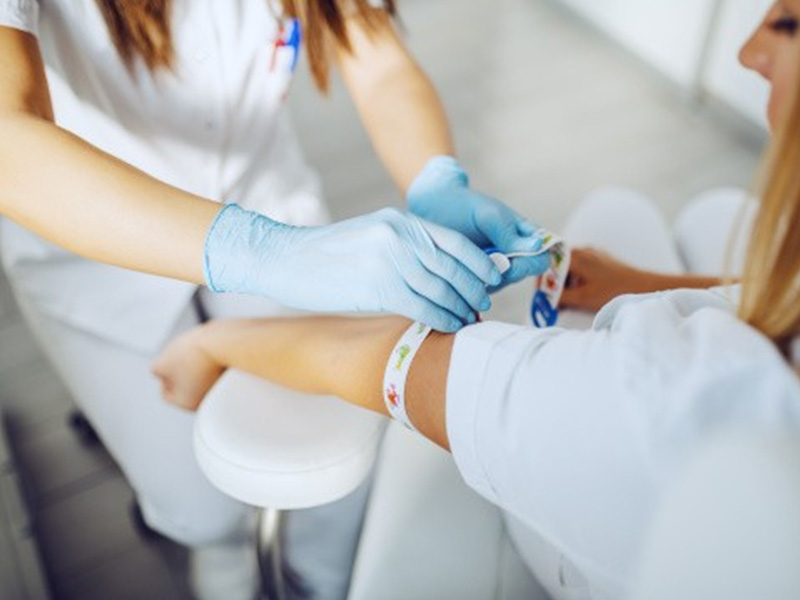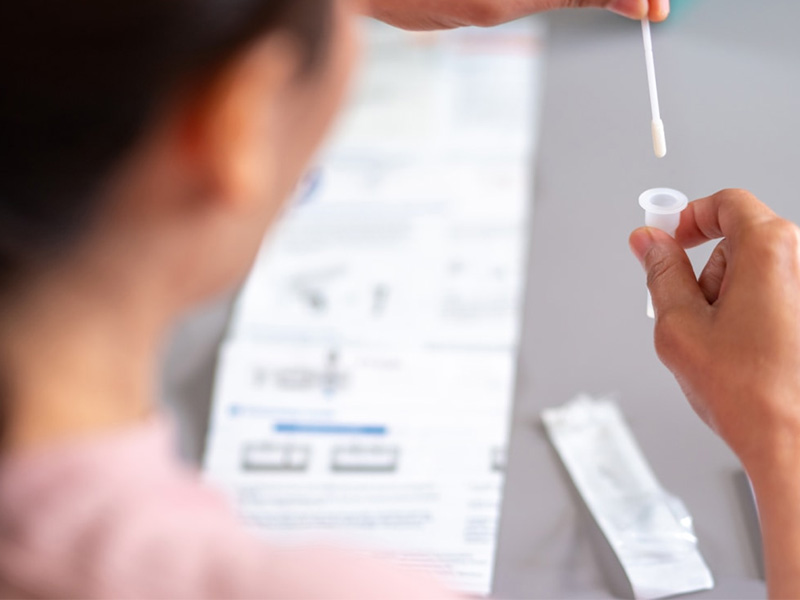Hormone Test Uncut Sheet
NewScen offers a wide selection of Hormone lateral flow rapid test kits designed for the rapid and precise detection of various infections, such as HCG, LH, FSH, and TSH.
Our range of products includes uncut sheets, providing flexibility for customization and scalability. Count on NewScen for dependable and efficient solutions for Hormone testing.
List of Other Available Hormone Test Uncut Sheet
NewScen provides rapid diagnostic test uncut sheets for all our produced lateral flow assays. If the specific uncut sheet you require is not listed, please don’t hesitate to contact us for more details.
Understanding Our Target Audience






Please feel free to contact us immediately to request samples for your Uncut Sheet business before commencing the rapid test production.
FAQ
FSH (follicle-stimulating hormone) and LH (luteinizing hormone) are both essential hormones that play crucial roles in the reproductive system.
FSH is primarily responsible for regulating the growth and development of ovarian follicles in females and stimulating the production of estrogen. In males, FSH stimulates the production of sperm in the testicles. Therefore, FSH levels are typically checked to assess ovarian function in females and sperm production in males.
LH is responsible for triggering ovulation in females and stimulating the production of progesterone by the corpus luteum after ovulation. In males, LH stimulates the production of testosterone by the Leydig cells in the testicles. Therefore, LH levels are commonly evaluated to determine the timing of ovulation in females and assess testosterone production in males.
Both FSH and LH levels are used to diagnose various reproductive disorders, such as polycystic ovary syndrome (PCOS), primary ovarian insufficiency, and male infertility. Monitoring these hormone levels can provide valuable insights into the functioning of the reproductive system and aid in the diagnosis and treatment of fertility issues.
In order to get pregnant, the levels of follicle-stimulating hormone (FSH) and luteinizing hormone (LH) play important roles. FSH is responsible for stimulating the growth of eggs in the ovaries, while LH triggers ovulation. The ideal levels of FSH and LH for pregnancy can vary depending on the specific stage of the menstrual cycle.
During the follicular phase (the first half of the menstrual cycle), FSH levels should be higher than LH levels. This helps in the development and maturation of the egg. Towards the end of the follicular phase, LH levels increase, leading to ovulation. After ovulation, during the luteal phase, both FSH and LH levels decrease.
However, it's important to note that the "ideal" levels of FSH and LH can differ from person to person, and they can also be influenced by factors such as age and underlying health conditions. If you're trying to conceive and have concerns about your hormone levels, it's best to consult with a healthcare professional who can evaluate your individual situation and provide personalized guidance.
The best time to test female hormones is typically during the first half of the menstrual cycle, specifically around days 2 to 5. This is when hormone levels, such as estrogen and progesterone, are at their lowest, providing a baseline measurement. However, depending on the specific purpose of the hormone test and the individual's menstrual cycle patterns, testing at other times may also be recommended. It's best to consult a healthcare professional for personalized advice regarding hormone testing.
Do's:
Follow the instructions given by your healthcare provider or laboratory regarding fasting requirements. Some hormone tests may require you to fast for a certain period of time before the test.
Inform your healthcare provider about any medications, supplements, or herbal remedies you are taking, as they may interfere with hormone levels and affect the test results.
Stay hydrated by drinking water before the test unless otherwise instructed. Adequate hydration can help with blood sample collection.
Dress comfortably and wear loose-fitting clothing to allow easy access to the area where the blood sample will be drawn.
Get a good night's sleep before the test to ensure accurate hormone measurements.
Communicate any concerns or questions you may have with your healthcare provider before the test.
Don'ts:
Don't consume alcohol or caffeine before the test, as they can interfere with hormone levels.
Don't engage in strenuous exercise or physical activity immediately before the test, as it may affect hormone levels.
Avoid smoking or chewing gum before the test, as it can affect hormone measurements.
Don't skip medications unless specifically instructed by your healthcare provider.
Don't schedule the test during your menstrual period if you are a woman, as it may affect hormone levels. Follow your healthcare provider's instructions regarding the best time for testing during your menstrual cycle.
Don't be afraid to ask questions or voice any concerns you may have about the test process.
The best test for hormone imbalance depends on the specific hormones being evaluated and the symptoms or concerns of the individual. There is no single "best" test that covers all possible hormone imbalances. However, some commonly used tests include blood tests, saliva tests, and urine tests.
Blood tests are often the standard for measuring hormone levels. They can provide a comprehensive evaluation of various hormones, including thyroid hormones, insulin, cortisol, and reproductive hormones such as estrogen, progesterone, and testosterone. Saliva tests are useful for assessing cortisol levels, as they can provide a snapshot of hormone levels throughout the day. Urine tests can be used to measure hormone metabolites and provide insights into hormone balance and function.
It is important to consult with a healthcare professional who specializes in hormone health to determine the most appropriate testing method for an individual's specific concerns. They can assess symptoms, medical history, and other factors to tailor the testing approach and interpret the results accurately.



